Our Programs
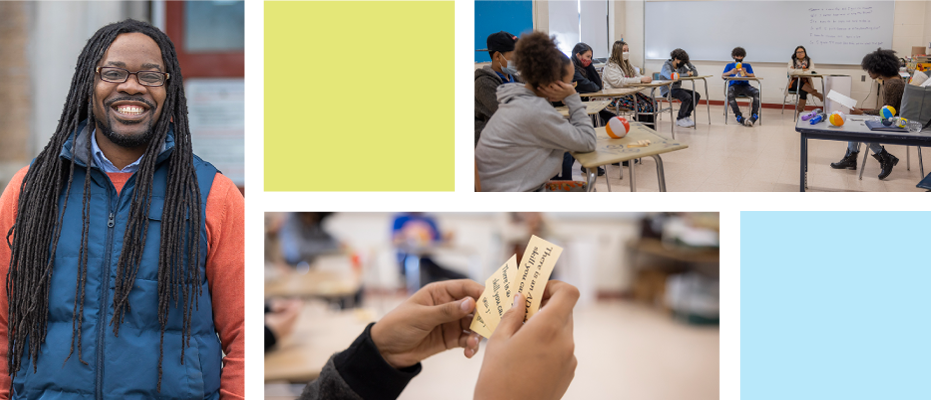
The need for behavioral health support is profound, yet the current systems in place are not delivering effective solutions. On a local and national level, resources are lacking and there is a great urgency to address these behavioral health inequities.
Our Portfolio of Evidence-Based Programs
Effectively supporting Communities of Color requires a long-term multi-tiered approach. Our Prevention Portfolio includes evidence-based programs that have much higher attendance and a 98% completion rate according to Rhode Island Child Welfare. These programs address systems-level universal needs, provide culturally-relevant support for Communities of Color, and are facilitated by BIPOC staff with shared lived experience.
They include:
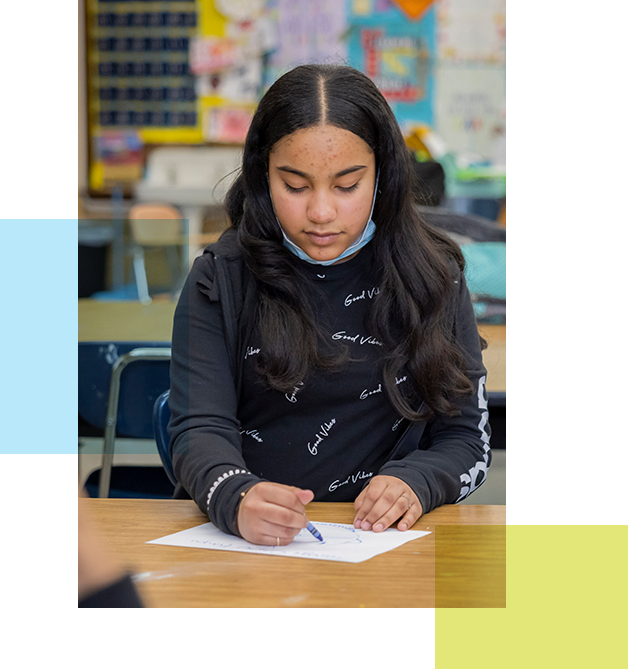
Cognitive Behavioral Intervention for Trauma in Schools (CBITS)
Community Need:
Providing coping skills for youth of color to reduce symptoms of trauma.
Program at a Glance:
10 week program that partners clinicians with performance artists to provide youth with coping skills to reduce symptoms of post traumatic stress disorder (PTSD).
Program is held during the school day for one hour per week.
Results/Evidence:
Proven effective in reducing symptoms of Post Traumatic Stress Disorder (PTSD).
By the metrics:
- 80% of participant youth showed a reduction in PTSD symptoms
- 17% improvement in emotional regulation
- 6% reduction in symptoms of anxiety
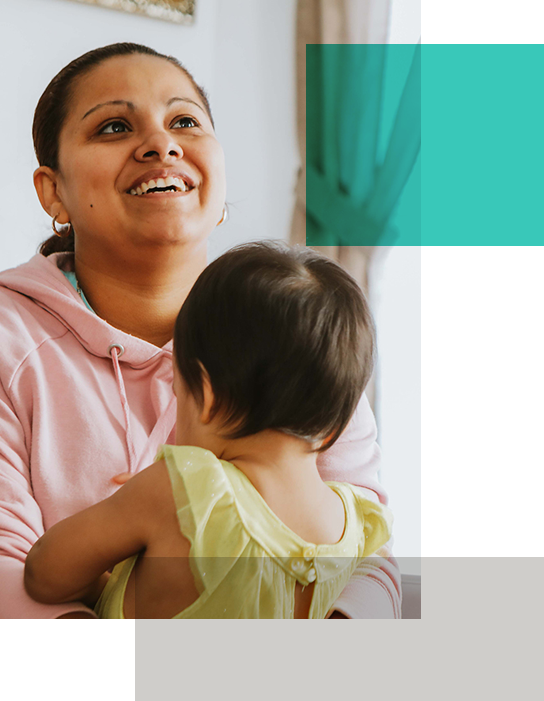
Familias Unidas
Community Need:
Building strong familial connections for adolescents from Spanish-speaking immigrant families.
Program at a Glance:
14 week program facilitated by Spanish-speaking, bicultural clinicians, discussions are fostered on sensitive topics such as risky sexual behavior, bias against immigrants and substance use in a way that is respectful of home culture.
Results/Evidence:
Proven effective in improving adolescents’ attachment to school, communication with family and reducing substance abuse.
By the metrics:
- 90% improvement in problem resolution (family)
- 20% improvement in school attachment
- 20% improvement in adolescent/parent communication
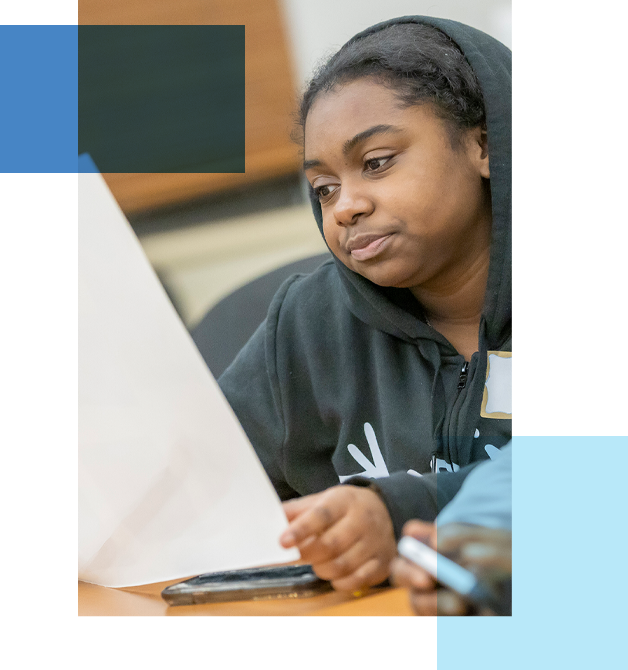
Strong African American Families (SAAF)
Community Need:
Strengthening family cohesion to improve communication and prevent risk in African American family units.
Program at a Glance:
Nine week program using culturally-specific techniques to address issues of substance use, racism and school attachment while building strong family to family networks.
Results/Evidence:
88% of the youth say that the content was relevant to their lived experience.
By the metrics:
- 30% improvement in goal-setting
- 25% improvement in empathy with parents/caretakers
- 20% improvement in choosing positive peer relationships

Act and Adapt
Community Need:
Reducing acute depression among youth of color.
Program at a Glance:
10 week program using a cognitive behavioral framework; coaches youth to improve their ability to cope with the symptoms of acute depression. Program is held during the school day for one hour per week.
Results/Evidence:
Results include a significant reduction in acute depressive symptoms, and are measured with pre- and post-behavioral health assessments for youth and families.
No data points yet, we are in an early implementation stage.
Trauma Systems Workshops
Schools play a key role in supporting the health and well-being of youth, including those affected by traumatic experiences. Our training supports are designed to better understand and help address trauma in youth. Trainings provide context, resources, examples, and strategies for educating school personnel and community members about trauma and are designed to promote empathy and resilience, as well as demonstrate how to implement trauma-informed approaches.
LEARN MORE ABOUT OUR TRAINING WORKSHOPS AND SEE OUR AVAILABLE TOPICS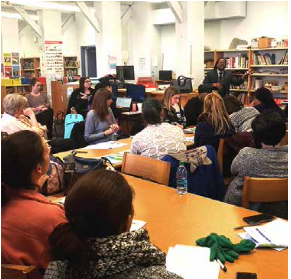
Trauma 101 Training
The first in our series, Trauma 101 provides an introduction to trauma and how it surfaces in the classroom using Providence and Central Falls as case studies. This training will provide basic information about neurobiology and the direct manifestation of trauma. Participants will discover the impact of increasing empathy and identifying and praising empathetic behaviors in our students.
DOWNLOAD OUR TRAUMA 101 WORKSHOP HANDOUT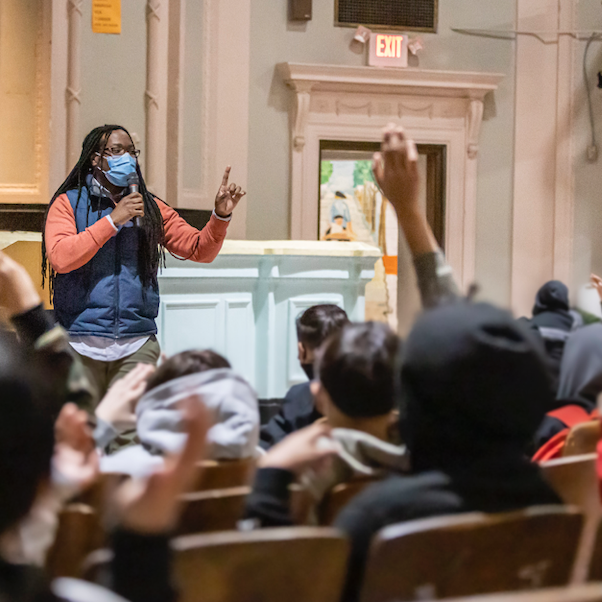
School Based Mental Health
There is no better time than the present to expand and integrate clinical and evidence-based supports into our public school systems.
LEARN MORE AND SEE OUR TOOLBOX FOR SCHOOL-BASED MENTAL HEALTH
Coaching of Organizations and Communities in Implementation Science and Replicating CYC’s Model
Across the nation, CYC coaches and supports organizations and communities to reimagine evidence based program implementation with equity at the center.
LEARN MORE ABOUT HOW WE SHARE OUR LEARNINGS WITH PARTNERS NATIONWIDE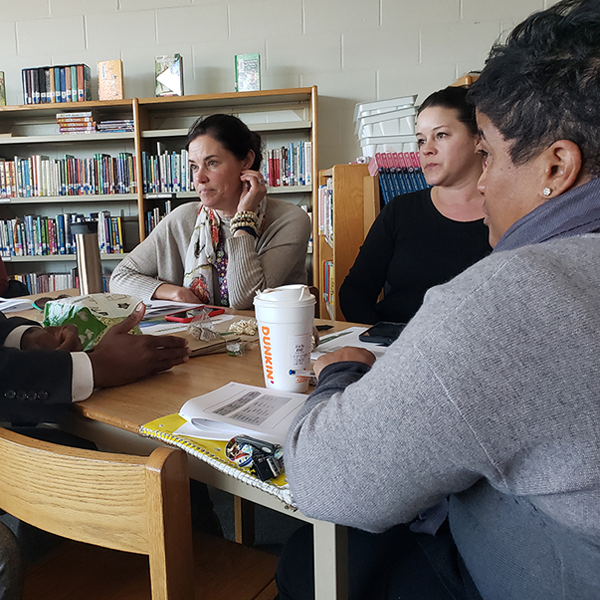
"Dr. Booth was so engaging and interesting to listen to that the time flew... The information he presented was so useful, so insightful, and so necessary given the population we serve."
— Attendee